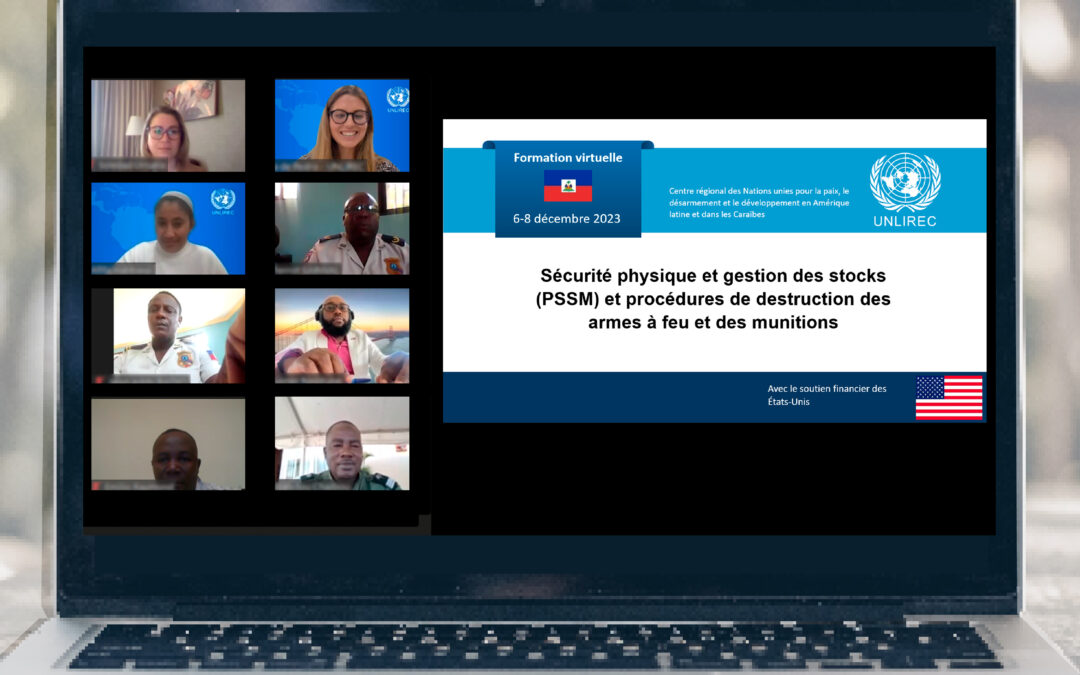From 6 to 8 December, thirty-five (35) Haitian National Police officers bolstered their capacities and knowledge on physical security and stockpile management (PSSM) through virtual training organized by the United Nations Regional Centre for Peace, Disarmament and Development in Latin America and the Caribbean (UNLIREC). Police officers tasked with arms control from various departments, including Artibonite, Grand Anse, North-East, North-West, North, Centre, Nippes, South and South-East, along with specialized units including the Intervention and Maintenance Corps, Motorized Intervention Brigade and Research and Intervention Brigade, gathered for this training.
The main goal of the training was to enhance the Haitian National Police’s capabilities in managing and securing stockpiles of weapons, ammunition, and explosives in accordance with international norms and standards, through theoretical lectures, practical exercises, and group discussions covering crucial aspects of PSSM.
Key topics included International Standards and Best Practices in Stockpile Management, incorporating the Modular Small-Arms-Control Implementation Compendium (MOSAIC) and International Ammunition Technical Guidelines (IATGs). The sessions also delved into standard operating procedures and security plans, marking and recordkeeping, inventory management, and firearms and ammunition destruction procedures.
This initiative aligns with Haiti’s priorities within the Caribbean Firearms Roadmap, specifically under Goal 4, which aims to systematically decrease the risk of diversion of firearms and ammunition from government- and non-government-owned arsenals. Effectively managing weapons and ammunition stockpiles not only mitigates the risk of loss and theft but also prevents accidents, helps to identify obsolete or surplus weapons, and, in turn, contributes to overall peace and security.
The training forms part of the technical assistance provided by UNLIREC in the framework of its project “Preventing Diversion of Conventional Arms and Ammunition in the Caribbean”, funded by the Office of Weapons Removal and Abatement in the United States.

